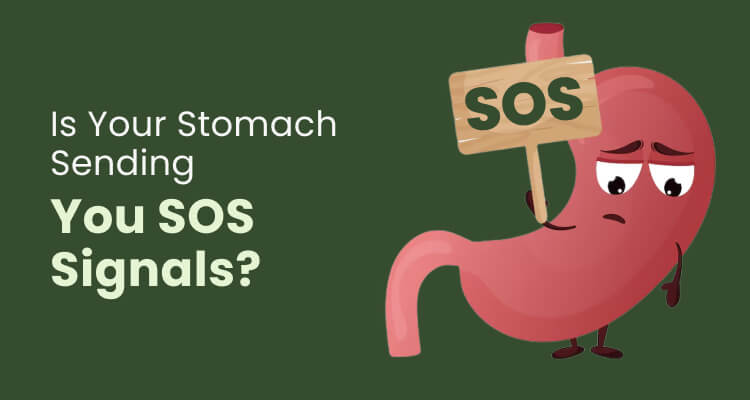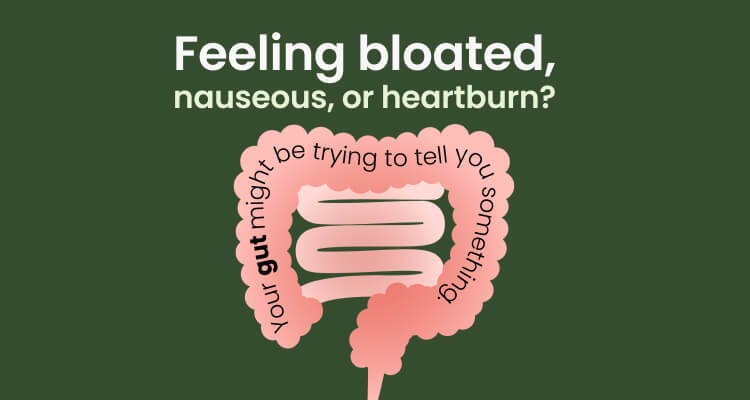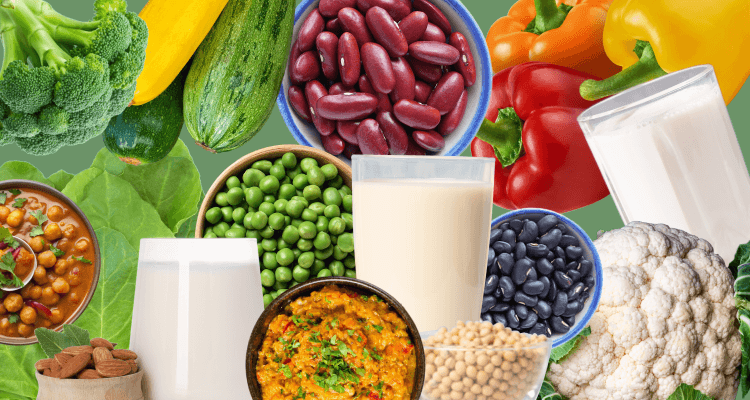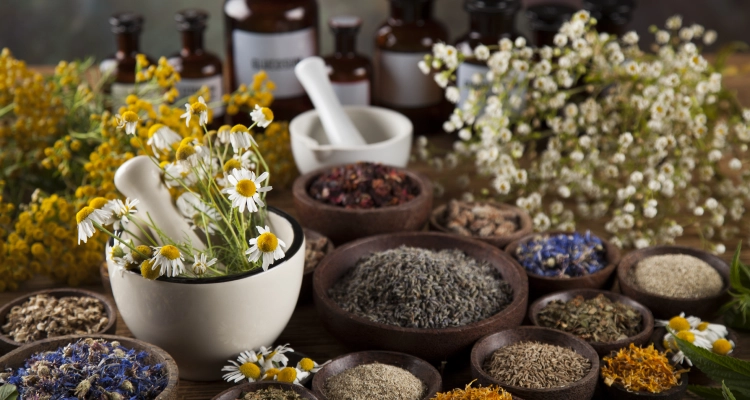Do you often feel bloated, battling heartburn, or dealing with that uncomfortable fullness after meals? You’re not alone! Many of us experience these digestive issues, often dismissing them as just part of our busy lives. But what if these symptoms are your body’s way of waving a red flag, urging you to pay attention?

Welcome to the world of acid peptic disorders (APD)—where the discomfort you feel might be more than just a minor annoyance. Acid peptic disorders include various conditions like GERD, gastric-peptic ulcers, functional dyspepsia, hypochlorhydria gastritis, and chronic gastritis.
Chronic gastritis and acid peptic ulcers are conditions that encompass several digestive complaints and are viewed as more than just an excess of acid—they are seen as disturbances in your body’s vital energies. Conversely, reduced secretion of stomach acid can also be a cause, which is referred to as hypochlorhydria gastritis. Whatever the mechanism may be.
In Ayurveda, we believe that our bodies are finely tuned instruments, and when something is off, it’s a sign that we need to dig deeper. Think of your digestive system as a garden: it thrives when all elements harmonize.
Ready to find out how? Join us as we explore how peptic ulcers are diagnosed and how the ancient wisdom of Ayurveda can help restore balance to your gut health.
The Role of Digestive Fire (Agni)
In Ayurveda, digestion is driven by your digestive fire (Agni). When this fire is weak or imbalanced, food doesn’t digest properly producing toxins (Ama). These toxins disrupt the stomach lining and can eventually lead to peptic ulcers.

So, how do you know when something’s not quite right?
Key Symptoms to Watch For
Ayurvedic practitioners often look for certain signs that reveal an imbalance in your digestion. Here are the symptoms of a potential peptic ulcer:
-
Bitter-Sour Belching
Have you ever noticed a sour taste lingering in your mouth after eating? In Ayurveda, it happens when your body struggles to process food, causing it to ferment and produce acidic gas. It is one of the first signs of digestive issues and is linked to low digestive fire.
-
Unexplained Fatigue
Do you feel exhausted even after a good night’s sleep or without doing much? It could be your body’s sign signaling that toxins are building up due to poor digestion. Ayurveda calls this fatigue without physical exertion a key sign that your digestive system isn’t working properly.
-
Weakness and Heaviness
Feeling heavy and sluggish? When toxins accumulate, they affect your energy and cause a sense of weakness or heaviness throughout your body. It is a clear indication that your digestion is off balance.
-
Nausea
Constant nausea or a queasy feeling after meals is another common sign of an ulcer. Ayurveda attributes this to the presence of toxins that interfere with normal digestion, leaving you feeling uncomfortable and uneasy.
-
Loss of Appetite and Taste
If your food suddenly tastes bland or you lose interest in eating altogether, it might be a sign that your digestive system needs attention. A loss of appetite often signals that your body isn’t able to process food efficiently, leading to a lack of proper nourishment.
-
Heartburn and Burning Sensation
Perhaps the most familiar symptom of peptic ulcers is the burning sensation in the chest or throat, often after eating. Ayurveda links this to excessive acid and heat in the stomach, which rises and causes discomfort not just in the stomach but also in the chest, throat, and sometimes even the palms and soles.
-
Pain in Abdomen
Experiencing sharp or cramp-like pain in your abdominal area can be a significant indicator of irritation and inflammation of the stomach lining, often associated with peptic ulcers. The pain may vary in intensity, sometimes manifesting as a dull ache or a more intense, burning sensation.
It may worsen after eating or when your stomach is empty, and can even radiate to your back or shoulders. If you notice this discomfort frequently, it’s essential to pay attention, as it can signal deeper digestive issues that require immediate attention.
-
Bloating or Fullness in Abdomen
Do you often feel bloated or excessively full after eating, even when you’ve had a small meal? It can be a direct result of improper digestion and the build-up of gas in the digestive tract. Bloating may be accompanied by visible swelling in the abdominal area and can lead to feelings of tightness or pressure.
It often arises when your digestive system struggles to break down food effectively, resulting in fermentation and gas production. If it persists, it may indicate that your body is having difficulty processing nutrients and eliminating waste, necessitating a closer look at your digestive health.
Why Do These Symptoms Happen? Getting to the Root
In Ayurveda, peptic ulcers aren’t just about an overproduction of acid; it’s understood as an imbalance of Pitta dosha, the energy responsible for heat and digestion. When our body’s energy, Pitta, is aggravated—whether from poor eating habits, stress, or lifestyle choices—it creates an excess of digestive fire, leading to common symptoms like acidity, burning sensations, and discomfort. But ulcers aren’t solely tied to Pitta. Other doshas, like Vata, can also play a role, especially when irregular eating patterns or anxiety disturb the natural flow of digestion.

In Ayurveda, it’s not just about managing symptoms but addressing the root cause. Ayurvedic practitioners would look into your overall lifestyle, diet, and emotional health to determine what’s aggravating your Pitta dosha. Factors like eating too much spicy or sour food, irregular meal times, and high stress levels all contribute to ulcers.
Conventional Diagnostic Methods for Peptic Ulcers
When it comes to diagnosing peptic ulcers, conventional medicine relies on a combination of tests and procedures to accurately assess the condition.
General Tests
- Blood Tests:
- CBC: Detects anemia, indicating possible ulcer bleeding.
- Serum Gastrin Levels: Assessed if excess acid production is suspected.
- Stool Test:
- Fecal Occult Blood Test: Reveals hidden blood in the stool.
Specialized Tests
- Endoscopy (EGD): Visualizes the stomach and duodenum, with biopsies if needed.
- Imaging:
- Barium Swallow: X-rays to detect abnormalities.
- CT Scan: Detects complications like perforation.
Functional Testing
- pH Monitoring: Evaluates the acidity levels present in the esophagus.
- Empiric Treatment: Trials acid-suppressing drugs to see if symptoms improve.
Unlike conventional medical approaches that rely heavily on technology and tests, Ayurveda offers a more personalized, holistic way to diagnose peptic ulcers. It starts by examining the dosha imbalances (particularly Pitta and Vata). Through a thorough assessment of the individual’s body constitution, lifestyle, diet, and emotional well-being, Ayurveda seeks to understand the underlying causes of heartburn.
How are Peptic Ulcers Managed in Different Circumstances as per Ayurveda?
Heartburn manifests differently depending on age, gender, and health conditions, and Ayurveda tailors its treatment approach accordingly. Let’s explore how heartburn is managed in specific cases.
How is Managing Heartburn in the Elderly Different?
As people age, they experience physiological changes that can complicate ulcer management. In Ayurveda, treatments for elderly individuals focus on gentle methods that balance Pitta while supporting overall digestive function.
- Gentle Digestive Support: Older adults may have a weaker digestive fire (Agni). Ayurveda suggests easily digestible foods, such as warm soups, stews, and well-cooked grains, to reduce acid reflux and strengthen digestion.
- Herbal Remedies: Soothing herbs like amla can cool down excess Pitta and promote healing without causing additional strain on the body.
- Panchakarma Considerations: For seniors, lighter versions of herbal enemas are used to gently cleanse the colon and restore balance without overwhelming the body.
- Cognitive and Physical Frailty: Special care is taken to manage ulcers in elderly individuals with cognitive decline, frailty, or comorbidities, ensuring that treatments are safe and effective.
How Do Gender Differences Affect Ulcer Treatment?
Men and women often experience peptic ulcers differently due to physiological and hormonal factors.
Ayurveda addresses these gender-specific differences by tailoring the treatment approach accordingly.
- For Women: Hormonal fluctuations, such as those during menstruation, pregnancy, or menopause, can exacerbate heartburn symptoms. Women often benefit from cooling herbs like Shatavari, which help soothe digestive discomfort. Ayurveda also emphasizes lifestyle adjustments during hormonal changes to prevent acid buildup that leads to heartburn in pregnancy.
- For Men: Men generally experience more H. pylori infections and lifestyle-related APD triggers. Ayurvedic treatments focus on detoxification and stress management techniques.
How is Heartburn Managed During Pregnancy?
Heartburn is a common issue during pregnancy due to hormonal changes and increased abdominal pressure. To ease symptoms, expectant mothers can try lifestyle changes like eating smaller, frequent meals and avoiding foods that trigger heartburn.

Ayurveda provides a safe and effective way to manage heartburn in expectant mothers.
- Cooling Diet: Pregnant women are advised to eat Pitta-pacifying foods such as coconut water, milk, and sweet fruits that reduce acidity without harming the baby.
- Gentle Herbal Remedies: Mild herbs like amla and Shatavari ease symptoms and strengthen digestion without causing harm.
- Mindful Eating Practices: Ayurveda recommends eating smaller meals to avoid overloading the digestive system, along with staying upright for some time after eating to minimize acid reflux.
What’s Different for Chronic Heartburn?
For those suffering from chronic peptic ulcers, Ayurveda offers long-term management through diet, lifestyle, and detoxification therapies aimed at restoring balance and preventing relapse.
- Herbal Formulations: Ayurveda prescribes herbs like Guduchi, Triphala, and Yashtimadhu (licorice) to soothe the digestive tract and maintain a healthy balance of stomach acids.
- Stress Management: Chronic heartburn is often linked to stress. Ayurvedic therapies, including pouring oil on the forehead, regular breathing exercises, and Yoga Nidra, help calm the mind and reduce acid production related to stress.
- Panchakarma Detox: For chronic sufferers, Panchakarma treatments like Virechana and Basti help remove toxins and balance Pitta over time.
Final Thoughts: Healing Acid Peptic Ulcers Naturally with Ayurveda
Managing peptic ulcers requires a personalized approach that addresses both the symptoms and underlying causes. Ayurveda offers a holistic solution that not only heals the digestive system but also promotes overall well-being through dietary changes, herbal remedies, and lifestyle modifications. Whether you’re dealing with occasional acid reflux or chronic heartburn, Ayurvedic therapies can help restore balance, reduce discomfort, and prevent long-term complications.
At Live Your Best Life, our approach focuses on treating the root cause of health issues like heartburn and peptic ulcers, offering expert consultations, customized dietary plan recommendations, and therapeutic yoga sessions tailored to your needs. By blending ancient practices with evidence-based strategies, LYBL ensures you receive comprehensive, natural care to live your healthiest, most balanced life.
Ready to start your healing journey? Explore how we can help you manage APD and achieve long-term wellness—because you deserve to live your best life.



























